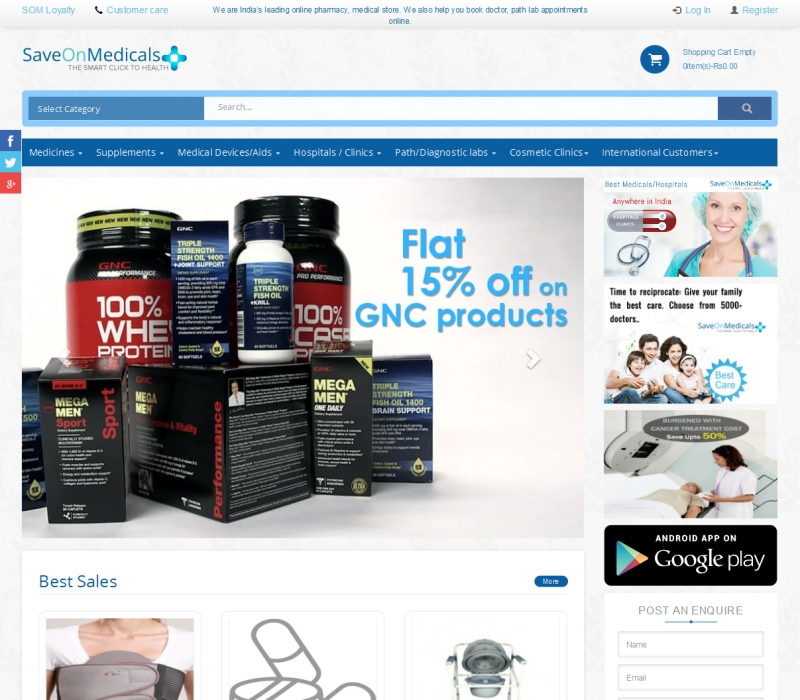
 Studies have established beyond doubt that most of the break-downs are found in the laboratories which are using spurious or locally manufactured duplicate reagents to run their hematology analysers, say Shubham Rastogi and Nitin Nayyar, Department of Marketing and Scientific Communications HORIBA Medical (India) Pvt Ltd.
Studies have established beyond doubt that most of the break-downs are found in the laboratories which are using spurious or locally manufactured duplicate reagents to run their hematology analysers, say Shubham Rastogi and Nitin Nayyar, Department of Marketing and Scientific Communications HORIBA Medical (India) Pvt Ltd.
Should doctor prescribe spurious medicines to his patient? Have you ever used duplicate fuel in your personal vehicle? Do you allow your child to go for local soft drink instead of Coke or Pepsi? And last but not the least: will you ever use Koolgate instead of Colgate for your dental hygiene, that too just to reduce expenditure of running your personal life? Hope we all will give unanimously same response, without our level of education or profession.

Considering same intentions under similar grounds, this also applies when we are talking about hematology analyser. The consequences are more severe and long-term because its not just your vehicle, your single patient or your personal dental hygiene but it is about the entire population getting served by the results of that hematology analyser. All those generated reports will guide umpteen number of surgeries and treatment protocols based on the values it generate after consuming reagents fed into its system. The quality of reagents will decide the quality and reliability of results. In turn, quality and reliability of results will decide the success of the treatment or surgery or avoiding the same.
What are Original Reagents?
Any chemical formula or solution prepared under strictly controlled standard conditions of temperature and pressure, utilising standardised and uncontaminated ingredients procured from standard and registered by authorised bodies or vendors following internationally acceptable standard GMP procedures and SOP norms is considered as an original reagent.

What are Spurious or Duplicate Reagents?
Any chemical formula or solution prepared under non-standard conditions of temperature and pressure, utilising sub-standard or contaminated ingredients procured from non-standard or non-registered sources or vendors without following any standard GMP norms may be considered as a spurious or duplicate reagent.
Research performed by team of expert internal engineers by various IVD companies clearly unearths that most of the break-downs are found in the laboratories which are using spurious or locally manufactured duplicate reagents to run their hematology analysers. The various reasons cited by the laboratory authorities are cost saving, easy supply, work-load, non-availability of original reagents or lack of manufacturing facility with the instrument manufacturer.
We may consider any factor but the effect remains substandard results, unreliable outcomes and indirect implications on the instruments performance and life.
Some of the Merits and Demerits of using Original Reagents
MERITS OF USING ORIGINAL REAGENTS:
Original reagents are strictly prepared on scientific basis and composition is kept constant as per the technology requirement.
- Scientifically driven Hydraulics of the hematology analyzer can be kept intact only by using original reagents.
- Original reagents show minimum or negligible variation with change in reagent LOT whereas locally manufactured reagents may show damaging variation when change in reagent LOT occurs due to substandard protocols and SOPs used to manufacture them in a small unlicensed set-ups built locally.
- Original Reagents maintains pressure and vacuum requirements to be maintained by the O-rings and valves throughout analysis process inside the analyser.
- Last but not the least, original reagents keeps the warranty and accountability of the Manufacturing company intact and builds mutually better and trustworthy relationship with the customer.
DRAWBACKS OR DEMERITS OF SPURIOUS REAGENTS:
Some of the baneful consequences of using duplicate reagents on your hematology analyzers are:
- Lot-to-lot variation of composition of reagents
- Unlicensed or non-standard manufacturing facility
- Non-compliance with GMP guidelines for reagent manufacturing
- Affects hydraulics parameters like pressure and vaccuum creation in sample and reagent flow tubing
- Indirect breach of trust and confidence with instrument manufacturer and loss of long-term support and service agreement
Conclusion:
- Always use original reagents manufactured or provided by the instrument manufacturer
- Design forecasting for your laboratory to avoid short notice supply and thus forced buy from local manufacturer
- Never cut cost on reagents to compromise quality and life of instrument performance
- Maintain trustworthy relationship with your instrument manufacturer
- Give the best diagnosis and healthcare services to your patients
- Last but not least, get registered on www.habx.in to know more about hematology important issues and concerns.
(The views expressed by the authors are their personal and do not reflect views of this publication)
Be a part of Elets Collaborative Initiatives. Join Us for Upcoming Events and explore business opportunities. Like us on Facebook , connect with us on LinkedIn and follow us on Twitter , Instagram.







